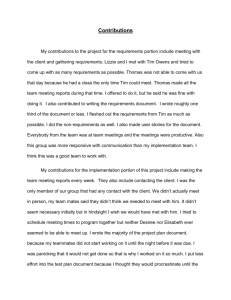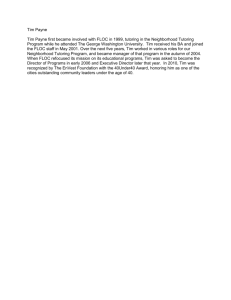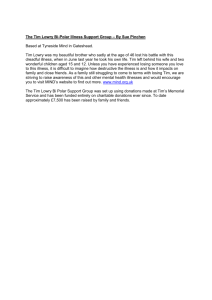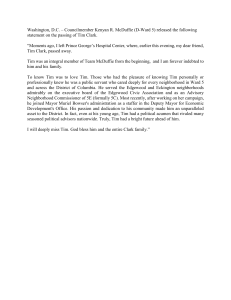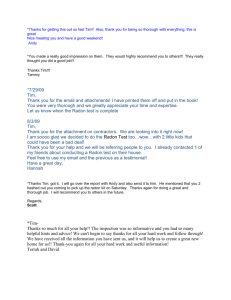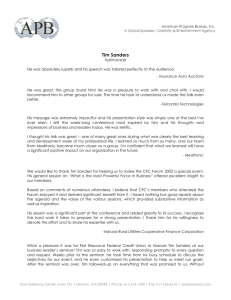Mystery – Tim`s tea
advertisement
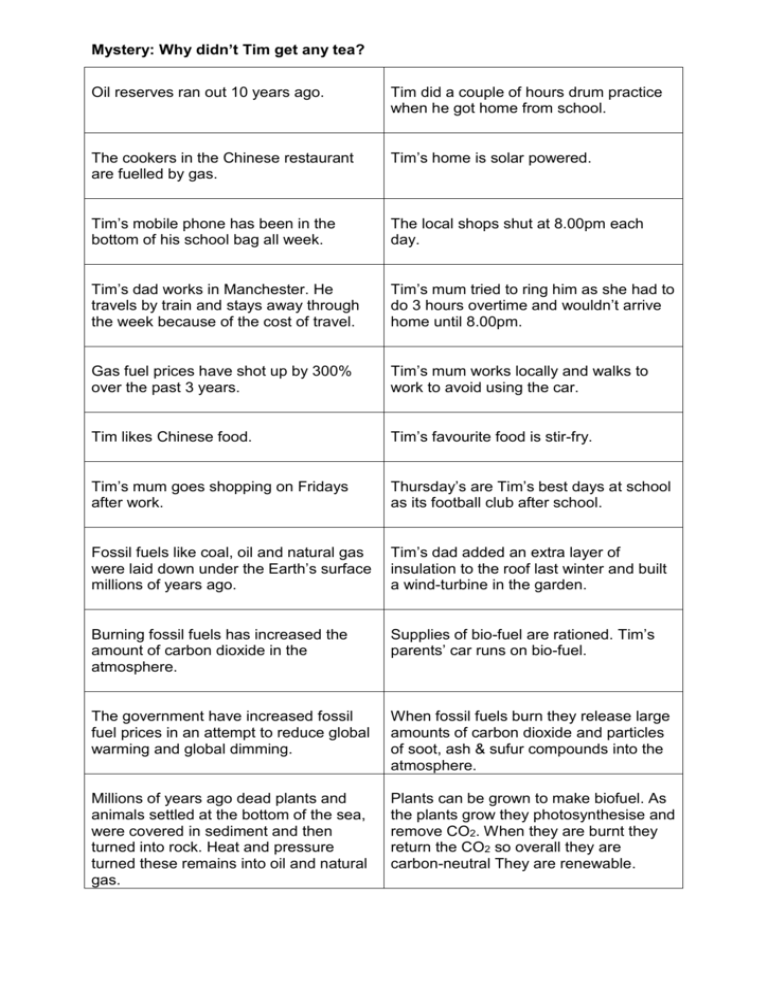
Mystery: Why didn’t Tim get any tea? Oil reserves ran out 10 years ago. Tim did a couple of hours drum practice when he got home from school. The cookers in the Chinese restaurant are fuelled by gas. Tim’s home is solar powered. Tim’s mobile phone has been in the bottom of his school bag all week. The local shops shut at 8.00pm each day. Tim’s dad works in Manchester. He travels by train and stays away through the week because of the cost of travel. Tim’s mum tried to ring him as she had to do 3 hours overtime and wouldn’t arrive home until 8.00pm. Gas fuel prices have shot up by 300% over the past 3 years. Tim’s mum works locally and walks to work to avoid using the car. Tim likes Chinese food. Tim’s favourite food is stir-fry. Tim’s mum goes shopping on Fridays after work. Thursday’s are Tim’s best days at school as its football club after school. Fossil fuels like coal, oil and natural gas were laid down under the Earth’s surface millions of years ago. Tim’s dad added an extra layer of insulation to the roof last winter and built a wind-turbine in the garden. Burning fossil fuels has increased the amount of carbon dioxide in the atmosphere. Supplies of bio-fuel are rationed. Tim’s parents’ car runs on bio-fuel. The government have increased fossil fuel prices in an attempt to reduce global warming and global dimming. When fossil fuels burn they release large amounts of carbon dioxide and particles of soot, ash & sufur compounds into the atmosphere. Millions of years ago dead plants and animals settled at the bottom of the sea, were covered in sediment and then turned into rock. Heat and pressure turned these remains into oil and natural gas. Plants can be grown to make biofuel. As the plants grow they photosynthesise and remove CO2. When they are burnt they return the CO2 so overall they are carbon-neutral They are renewable.

